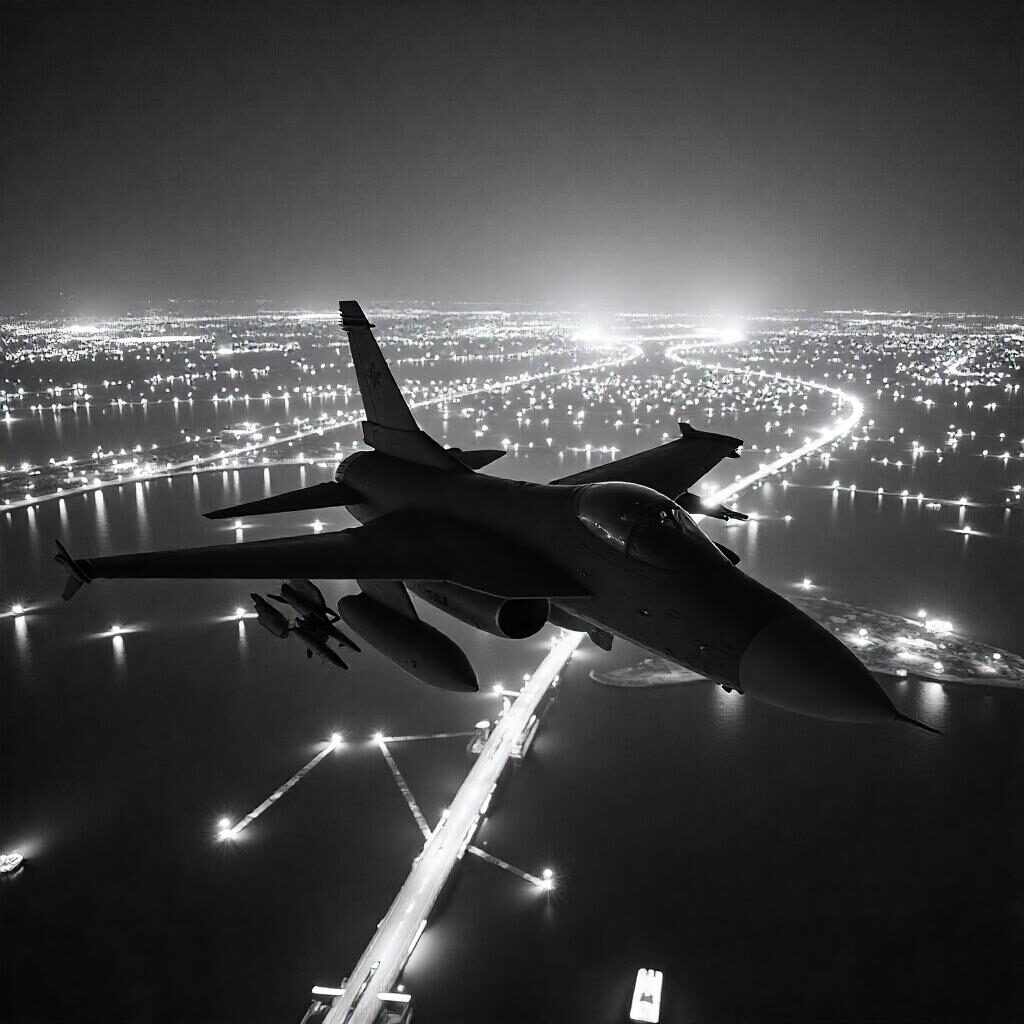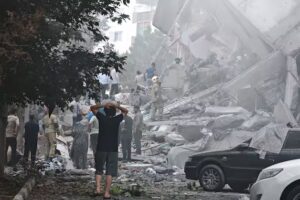INDIANAPOLIS – As dawn broke this morning over a world holding its breath, it illuminated a Middle East irrevocably altered. A simmering, decades-long shadow war between Israel and Iran has burst into the open, ignited by an Israeli military operation of stunning audacity and lethality. Codenamed “Operation Rising Lion,” the ongoing assault is not merely a retaliatory strike but a declared, open-ended war designed to decapitate Iran’s leadership and permanently cripple its nuclear ambitions. In a high-stakes gambit that has sent shockwaves through the global economy and upended geopolitical calculations, Israel has crossed its Rubicon, betting its security on a decisive, preemptive campaign from which there is no return.
The first indication that this was an event of historic magnitude came not from explosions, but from the sudden, chilling silence of Iran’s top command. In a coordinated, multi-domain attack combining air power with on-the-ground covert operations, Israel achieved a goal long thought impossible: the near-total elimination of Iran’s senior military and scientific leadership in a single night. Reports confirmed the deaths of General Mohammad Hossein Bagheri, the Chief of Staff of the entire Iranian Armed Forces; Major General Hossein Salami, the powerful commander of the Islamic Revolutionary Guard Corps (IRGC); and Major General Amir Ali Hajizadeh, the head of the IRGC’s formidable Aerospace Force. An Israeli defense official later confirmed that most of the IRGC’s air force commanders were killed while gathered for a single meeting in a hardened underground bunker, a catastrophic intelligence failure for the Islamic Republic.
The “human-centric” targeting did not stop there. At least six senior nuclear scientists were also assassinated, including prominent figures like Fereydoun Abbasi-Davani, a former head of Iran’s Atomic Energy Organization. The success of the decapitation was made evident by the ensuing chaos in Tehran, where state media announced, and then bizarrely retracted, the names of successors to the slain generals. The message was unmistakable: this was not attrition; it was a methodical erasure of an entire generation of Iranian strategic leadership.

The justification for such a monumental gamble was delivered with equal force by Israeli Prime Minister Benjamin Netanyahu. In a televised address to a nation huddled in bomb shelters, he framed the attack as a non-negotiable war for survival. “We have no alternative but to act swiftly,” he declared, vowing the battle would continue for “as many days as it takes.” Invoking the specter of the Holocaust, he presented a stark choice: “If we don’t act now, there won’t be a next generation.”
The proximate cause for the timing of the assault was a rapid sequence of events earlier in the week. A damning report from the International Atomic Energy Agency (IAEA) censured Iran for non-compliance with its nuclear obligations. Tehran responded with defiance, announcing it would construct a new uranium enrichment site. For Israel, this was the final pretext. Years of clandestine warfare—of sabotage attributed to Mossad agents and malware injected into centrifuges—had given way to open war.
While the human toll mounted, so too did the damage to Iran’s sprawling military-industrial complex. The initial strikes on the primary nuclear facility at Natanz were followed by subsequent waves targeting a missile manufacturing plant in Shiraz and various military and airport facilities in Tabriz. It was a clear effort to systematically dismantle not just the nuclear program itself, but the means to deliver a potential weapon.
As Israel’s warplanes operated with near impunity, a predictable but crucial secondary effect rippled outward from the battlefield: the economic shockwave. Global markets, already skittish, reacted with immediate panic. The price of Brent crude oil surged by more than 6%, with analysts from Bloomberg Economics modeling a worst-case scenario of $130 per barrel should the conflict lead to a closure of the Strait of Hormuz, the artery for nearly a fifth of the world’s oil supply. In a move with immediate regional consequences, Israel ordered the shutdown of its largest offshore natural gas field, Leviathan, impacting energy supplies to Jordan and Egypt and causing European gas prices to jump over 6.6%. The message was clear: the cost of this war would be borne globally.
On the global chessboard, the world’s powers scrambled to react. The administration of Felonious Punk, which had been engaged in faltering nuclear talks with Iran, walked a perilous tightrope. Secretary of State Marco Rubio insisted the U.S. was “not involved,” while simultaneously warning Iran not to target American interests. The President himself, in a series of posts on his social media platform, seemed to give the operation his tacit blessing, taunting Iran to “make a deal, before there is nothing left” and noting that he had warned them this could happen. This posture, perceived by many as a green light for the Israeli operation, has placed U.S. assets throughout the region in a precarious position.
European leaders in the UK, France, and Germany urged restraint, while regional powers like Oman condemned the attack as a reckless escalation. Yet, amid the calls for de-escalation, a sober political analysis emerged. Experts noted that such a foreign attack, rather than sparking an immediate popular uprising against the clerical regime in Tehran, was more likely to produce a “rally around the flag” effect, at least in the short term.

As of this morning, the first phase of Iran’s retaliation is underway. Over 100 drones were launched towards Israel, though initial reports suggest that robust Israeli and Jordanian air defenses have intercepted the majority of this first, slower-moving wave. But no one believes this is the totality of the response. The Iranian regime, stripped of its most experienced leaders and humiliated on the world stage, is now cornered. Its next move, likely involving a significant ballistic missile barrage, will determine the next stage of this escalating conflict.
Israel has made its move, a gambit of historic proportions. It has traded the ambiguity of a shadow war for the brutal clarity of open conflict, betting that a swift, devastating blow could resolve an existential threat once and for all. The immediate military success of “Operation Rising Lion” is undeniable, but it has come at the cost of plunging the Middle East into its most dangerous crisis in a generation. The world now watches, waiting for Iran’s true answer, as the fate of the region and the stability of the global economy hang precariously in the balance.
Discover more from Clight Morning Analysis
Subscribe to get the latest posts sent to your email.










